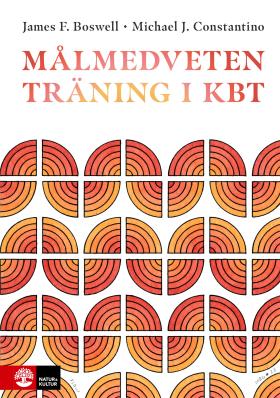”Deliberate practice – there is always room to learn and grow as a therapist”
James F. Boswell och Michael J. Constantino har skrivit Målmedveten träning i kbt och svarar här på några frågor utifrån boken.
What are the major advantages of deliberate practice?
Deliberate practice is not a substitute for case-based training. However, case-based training does not generally provide opportunities for repeated practice of discrete skills guided by real-time feedback. An advantage of deliberate practice is the focus on discrete skills and the integration of timely, behaviorally-anchored feedback that prompts real-time reflection and opportunities to adjust behavior, practice repeatedly, and continuously fine-tune skills.
Among other potential advantages, deliberate practice is also endlessly adjustable to fit the developmental levels, gaps, and interests of therapists. Even with extensive training case experience, one may not encounter certain types of presenting problems, identities, interpersonal styles, or difficult session scenarios. Rather than reading about these contexts in a textbook and waiting until they present themselves naturally with a future patient, one can design deliberate practice exercise scenarios to practice how to respond if/when these contexts are encountered.
What are some common misconceptions about deliberate practice?
One common misconception is that deliberate practice is overly reductive and artificial relative to the complex and dynamic nature of within-session interactions with real patients. It is true that simulated practice is not a substitute for real patient interactions; however, the core of this critique is that it is too reductive to meaningfully translate to work with real patients. The deliberate practice book offers several analogies to illustrate why this generalizability critique is a misconception. There is good evidence that expertise develops by breaking down more complex activities into constituent components, practicing and refining the most relevant “rules” and components outside of the ultimate performance context, and then bringing these components together over time through repeated practice and refinement both within and outside of the primary performance context (i.e., in and outside of the therapy room). This critique is tantamount to telling a football player they are wasting time by practicing passing drills the week before a match.
Another common misconception is tying deliberate practice and expertise development to the popularized “10,000 hour rule” that refers to some published research on the practice behaviors of expert musicians. However, this number is arbitrary, and a rigid application of this “rule” is inconsistent with the principle of deliberate practice activities needing to be tailored to the individual and context. In many jurisdictions, trainee-therapists are required to complete a minimum number of training hours to be credentialed. Although the amount of training is not irrelevant, the quality of the training is arguably more relevant to professional development, and we argue this is also the case for deliberate practice.
What advice would you give to more senior therapists?
Deliberate practice can support professional development at any career stage. There is always room to learn and grow as a therapist. Multiple lines of research in recent years have underscored the importance of professional humility and consistent self-reflection on one’s practice and outcomes. Our ability to harness specific skills for patient benefit might also fluctuate over time; in such cases, one can work (e.g., through deliberate practice) to return to previously high levels of competence and/or identify and develop new skills and practices to achieve positive outcomes with patients through novel pathways. In other words, we encourage senior therapists to adopt a growth-orientation, rather than a fixed-mindset, and the flexibility of deliberate practice is one approach to supporting continued professional development and an expanded repertoire of skills.
Intervjun genomfördes i augusti 2025.


Målmedveten träning i kbt
Målmedveten träning i kbt är en bok för dig som vill bli en riktigt skicklig terapeut inom kbt. I målmedveten träning övar man på centrala kliniska färdigheter via rollspel med feedback. Man turas om att spela terapeut respektive klient, och får respons av en handledare för att förfina en mängd olika färdigheter.

